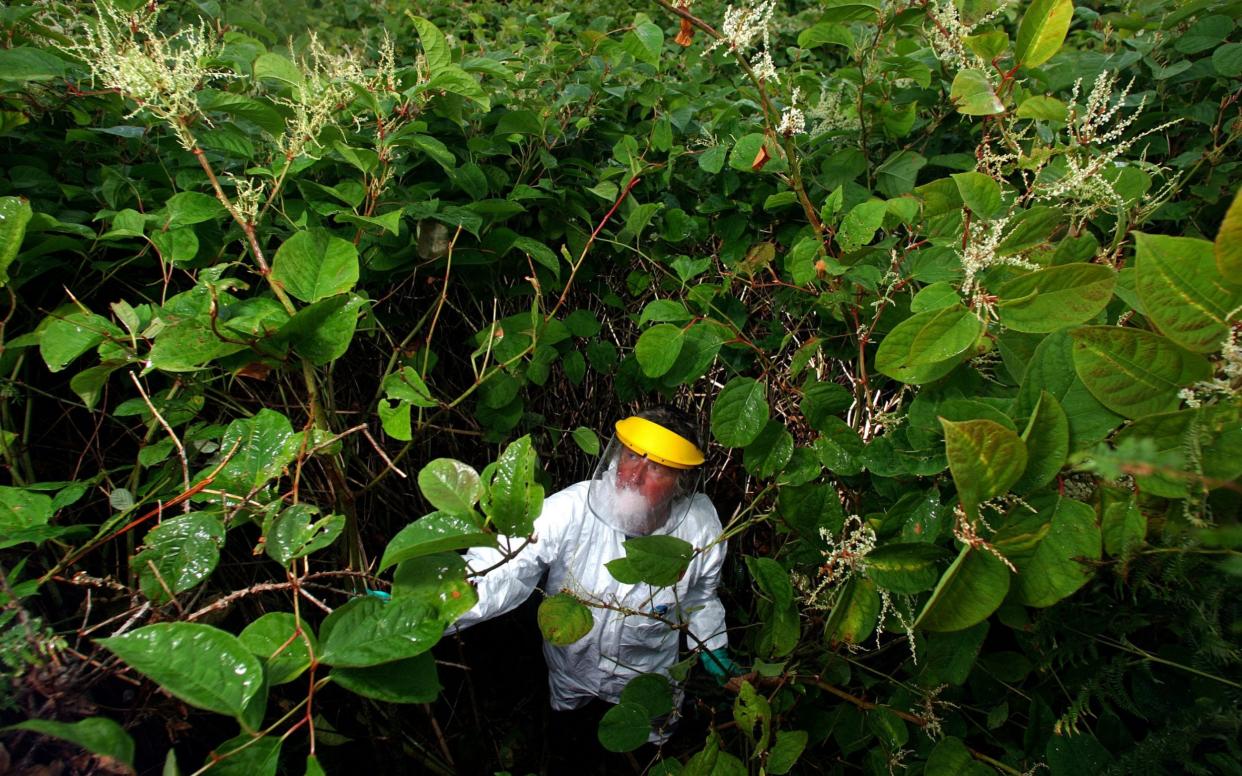Government could train two million people to spot and destroy invasive species

A two million-strong citizens’ army could be trained in biosecurity to stop invasive species getting a foothold in Britain under plans being considered by the government.
Invasive species such as Japanese knotweed, signal crayfish and the fungus that causes ash dieback are estimated to cost the British economy £1.8bn every year in combatting issues including damage done to natural biodiversity, buildings and waterways.
Some non-native species can be a threat to human life, such as non-native deer which have spread Lyme disease.
The Government will consider calls to create a network of volunteers trained to spot invasive species and report them to the Environment Agency.
The proposal would be modelled on a similar scheme in New Zealand, which has pledged to train more than 2 per cent of its population in biosecurity by 2025.
It is included in a report by the Environmental Audit Committee, which says the UK is falling short of its legal targets to combat non-native species.
Up to 48 invasive species are expected to take hold over the next 20 years on current rates of arrival, according to the Department for Environment and Rural Affairs.
The Government will also consider calls to introduce a dedicated inspectorate and to mount a public awareness campaign of the dangers of non-native species.
Invasive species are often carried in on ships, or are imported as garden plants or pets.
Ash dieback, which is believed to have been brought into Britain on infected imported ash trees more than a decade ago, is projected to cost a total of £15bn in clearing up dead and dying trees, and the lost value of the 95-99 per cent of ash trees it is expected to kill.
In April the government curbed the import of olive trees and lavender bushes to stop the spread of Xylella fastidiosa, which has destroyed vast numbers of olive trees in Italy, France and Spain and which could threaten oak, elm and plane trees.
Environmental Audit Committee Chairman, Philip Dunne, said: “We will continue to monitor progress of the Government in this area to ensure the necessary steps are taken to protect our crops, forests and wider biodiversity from harmful invasive species.”


